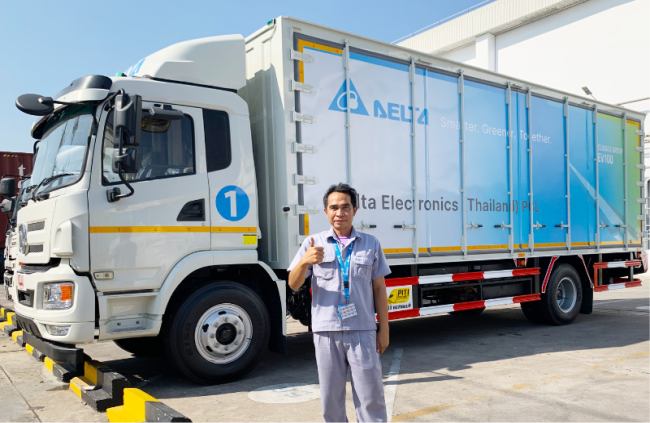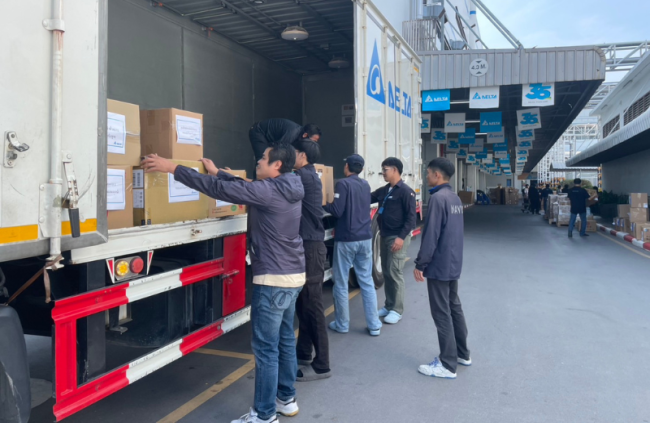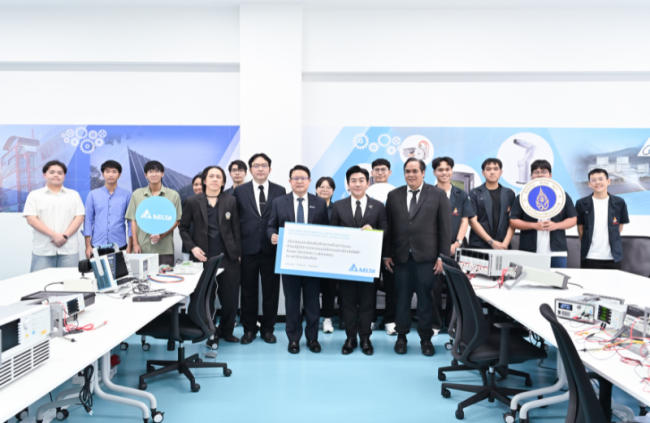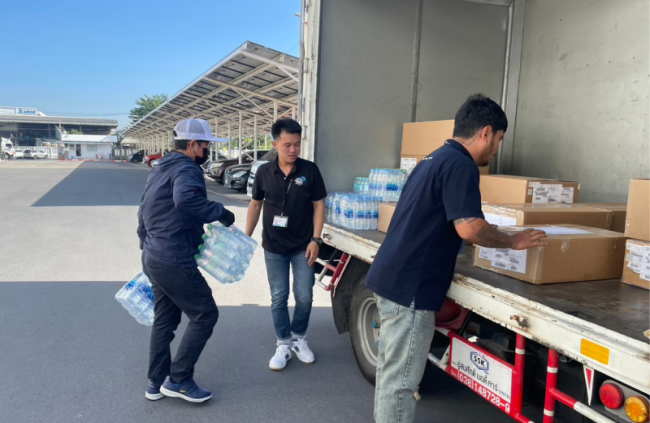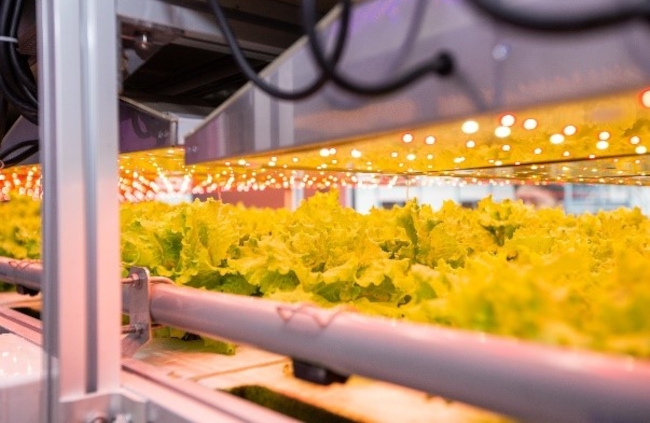AI, IIoT, Robotics with Automation are Front Runners in Combatting COVID Challenges
By Manish Walia - Published March 20, 2022
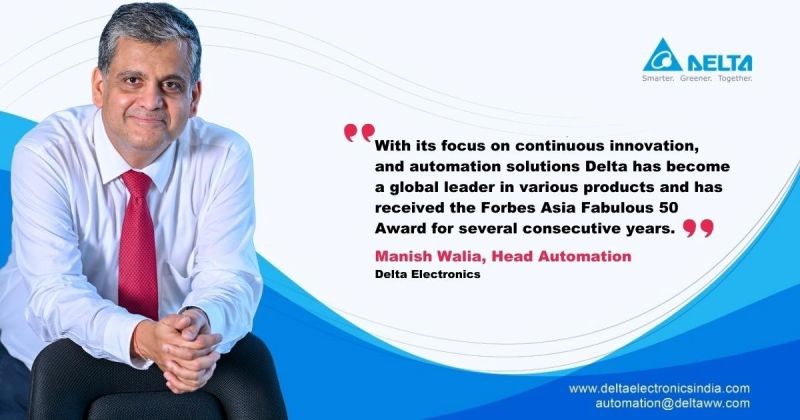 By Manish Walia, Business Head-IA Solutions, Delta India
By Manish Walia, Business Head-IA Solutions, Delta India
Sometime in 2020, cities that never sleep fell silent and people who were always on the go, locked themselves inside their homes. The only thing that travelled with abandon was a virus, naked to the human eye, but so big that it seemed to dictate life on planet Earth. There was a shift in every sphere of life as safety warranted distance and positivity took on a whole new meaning. COVID-19 struck and life has been irrevocably changed.
Safety concerns have been of utmost concern during this changing period and mandating social distancing as a requirement, leading to the labour force reduced or stuck at home. Meanwhile, the presence of automation began to silently rise. Industry 4.0, once a future upgrade, is now being implemented on war footing.
Business Today caught up with Manish Walia, Head Automation, Delta Electronics India to know how automation technology is helping tide over the pandemic situation.
How do you see the gloom of the COVID period lifting over industry?
The pandemic took the whole world by surprise. Experiencing stumbles in such situations is but natural. It has been an evolving situation that does throw up new challenges continuously. Yet, it has forced us all to recalibrate. The pandemic has taught us the importance of maintaining the well-being of our community.
The change was followed by immense growth for companies which included reassessing what is important. Flexibility to adapt to change has also been followed by the ingenuity of making the situation work for us and not against us. As the situation is unique, it has brought focus on not just doing things but also how we do them, and the impact of what we do. We see businesses aligning more deeply with the values they were built on.
How much of the adaptation to this situation do we owe to technology?
Technology has been the backbone of this change; be it communicating, accessing information, services and products, functioning through remote work or production. I remember just before the first lockdown, we had finished installing a machine for a customer and were still to commission it when the lockdown was enforced. Our engineer could no longer travel to do this on site. Thankfully, we could bring the machine online and commission it despite the restrictions.
According to reports by Technavio, the market growth of Industrial Automation segment will grow by approximately $ 2 billion. Of course, all this has to be backed by trust. After the pandemic hit, there was a scramble across sectors to automate their production lines. Unlike the usual in-person meetings and customer visits, all business was conducted on phone and online. It was the trust in the Delta brand which had been delivering global standard automation technology for over 50 years that helped our customers choose us to transform their production.
Yet, the growth of technology has also been cited by many as the reason for widespread job losses, how do you reconcile with that?
Technology competes with human beings only in cinematic fantasies, in real life it is a collaborative force with human beings operating or directing. Manual unskilled labour once entailed extremely hazardous jobs which were in direct conflict with the physical well-being of the people who carried them out.
With reduced hazard, the possibilities of using these processes have increased greatly. This bolsters more people to create enterprises. Of course, the difference is that the labour is now upskilled through training and they get options for further growth. This has been a big win for safety in the workplace and at Delta, we are proud to be part of making this possible.
Which sector has been the most adaptive to technology in this period?
Historically, it has been the automotive sector that has been the fastest to adapt however, since 2020, the medical and pharmaceutical sectors have taken quite a lead. Both these sectors are essential and their workforce has performed with the zeal of soldiers serving the nation.
Through our collaborations, we helped them meet the unprecedented rise in demand by incorporating smart machines and robots in their process lines and automated the entire process lines wherever possible to enhance productivity further.
What can Indian Industry look forward to and how does automation aid these opportunities?
It’s time to pull up our sleeves and get to work as India is gearing up to be the manufacturing hub of the world and aiming at becoming self-sufficient through the Atmanirbhar initiative. At Delta, we are really excited to be at the center of this exciting scenario.
One of the biggest requests we receive is for our software that links the shop floor to the top floor as a middle layer to make the process line collaborative and communicate with the main server. The software collects data and produces reports that analyse the assembly process and help fix lags, enhance productivity and spot any inconsistencies before they grow into bigger problems.
In the future, these reports will be powered into AI for decision making and create a high-level process optimization. All these solutions are also energy-efficient. All in all, automation is not just about making an upgrade, it is the efficient way to long-term success.

